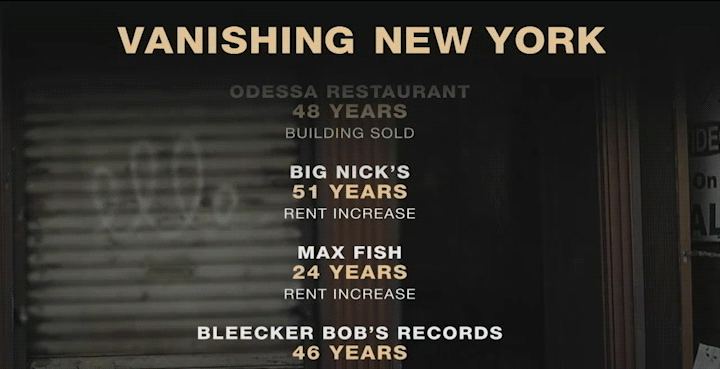NEW YORK – One block from the theater where she's starring in Edward Albee's "A Delicate Balance," Martha Plimpton met us for one of her last bowls of Café Edison's chicken noodle matzo ball soup. It's one of her favorite between-performance meals.
For 34 years, Café Edison served as a gathering spot for New York's theater community. Under sweeping ballroom ceilings, stars and producers, musicians and writers shared hearty Eastern European fare at prices as retro as the décor. As we ate, Plimpton pointed to another table where half the crew of her show was having their dinner break.
"There are very few places left in this area that really feel like something that the Broadway community uses or shares," she said. "Now, it's just a lot of chain restaurants and expensive fancy places and places geared toward tourism."
The restaurant is now a part of Broadway history. A casualty of luxury development sweeping across the city, the icon closed its doors on Dec. 21, despite the best efforts of New York's theater community to save it.
"The owner of the hotel wants to convert the place to a white table cloth restaurant with a name chef," mourned Conrad Strohl, the owner. "He says he doesn't want Café Edison here anymore."
Café Edison is one of 82 New York City restaurants that closed in 2014, according to a Zagat survey, twice as many as the previous year. Another survey, this one from Jeremiah’s Vanishing New York, a blog run by Jeremiah Moss, looked at business closures, and found that the city lost nearly 7,000 years of history from 2001 to 2013.

This breakneck transformation has prompted some soul-searching over how to define the wealth of the city: by the rents it commands or the diversity of its people and places?
"New Yorkers have come to expect this kind of thing. We know that change is always around the corner, right?" said Plimpton, as her matzo ball soup cooled. "Nothing lasts forever. We know this here very well. The thing is there are things about our city that give it character that regular working people use that are disappearing that we need."
The skyrocketing rents aren't just squashing local establishments; they're pricing out whole populations. An analysis by the real estate information firm RealtyTrac found that Brooklyn is now the least affordable housing market in the country, which has hit some of the city's most fragile residents hard.
Annemarie Mogil loves the view from her bedroom window. The 92-year-old has taken dozens of photographs of it in the year that she's lived here, which she keeps in a tidy shoebox. At a prime corner in Brooklyn, Prospect Park Residence has been a home for seniors since 1962 and an assisted living facility for the last decade.
But two months after Mogil moved in, the owner sold the building to a developer of luxury condos for $76.5 million, nearly double its sale price in 2006. More than 120 residents, including some Holocaust survivors, were told to find another place to live. Mogil is one of only eight residents who refused to leave.
"I'm not ready to go," she said. "This was really advertised from the beginning as a place where you come to age in place. And aging in place means this is your final residence."
According to their families, many of the residents who left have seen sharp declines in their health. Some have died since the residence announced it would be closing.
"It's a devastating feeling," said Mogil about the prospect of being forced out of her home. "And I wouldn't wish it on anyone."
The battle has now shifted to the courts. Mogil and a handful of other residents charged that the operator cut back on basic services and failed to help occupants find alternative homes, in violation of its own closing plan. The group also sued the State Health Department, arguing that it shouldn't have approved the plan, since it discounted the needs of residents. In November, Mogil and her neighbors won a preliminary injunction that allowed them to stay in their apartments – for now.
The property owner didn't respond to America Tonight's request for an interview, but referred us to a March news release: "Rising costs and tax obligations made it no longer viable to operate an eldercare residence."
But with each passing month, more people and more businesses like Café Edison are being priced out of their longtime homes.
"We've learned how to preserve buildings," said Ron Shiffman, a professor of community development at the Pratt Institute in Brooklyn. "We've got to learn how to preserve culture. We really have to fine-tune the kind of programs and incentives to keep places like Edison alive."
Error
Sorry, your comment was not saved due to a technical problem. Please try again later or using a different browser.